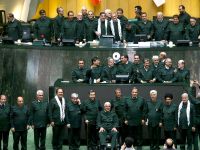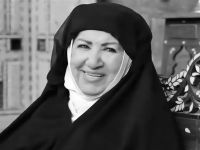Somalia's transitional parliament early Saturday elected Abdulkassim Salat Hassan as the new president, but he faces a tough task ending anarchy in a country that has been lawless since 1991.
Somalia has lacked a central government since the 1991 overthrow of president Mohamed Siad Barre, under whom Salat Hassan served as interior minister. Since then, the nation has been ruled by rival warlords.
In a third round of voting by the transitional parliament, formed after negotiations sponsored by neighboring Djibouti, 145 deputies voted for Salat Hassan against 92 for Abdullah Ahmed Addow, a former ambassador to the United States.
Salat Hassan, 58, from the Hawiye clan, faces the tough task of ending the anarchy that has reigned in Somalia since 1991. Most of the warlords did not take part in the reconciliation conference here.
Only a Hawiye, one of the four main clans, or bloodlines in Somalia, is thought to have the influence to restore security in Mogadishu.
From 1973 to 1990, Salat Hassan was successively minister of industry, trade, labor, information and the interior. He is considered as being close to Islamist circles.
The election is one of the key stages of a reconciliation process initiated by Djibouti's President Ismael Omar Guelleh.
The swearing-in ceremony will take place on Sunday under a large tent in the resort town of Arta, some 30 kilometers (20 miles) outside Djibouti, where talks began in early May.
Under the provisions of a constitutional charter adopted by the delegates, the government to be named by the new president will first sit in the Somali town of Baidoa, until security improves in Mogadishu, which is divided up between rival militia groups.
No date has been announced for the formation of the government, and no names have been put forward for the post of prime minister.
In a brief speech after the vote, Salat Hassan said his election marked "the beginning of democracy in Somalia" and pledged to "work and do all my ability to serve the Somali people."
Losing candidate Ahmed Addow congratulated the new president and said he would work together with him, describing the election as "fair".
Opponents to the Arta reconciliation talks, such as most warlords and leaders of the self-declared autonomous region of Puntland and of the breakaway northern republic of Somaliland, insist the process can only lead to a government in exile.
The Arta process has been a delicate exercise in distributing power between the clans. The conference reserved blocs of seats for each of the major groups, who then spent a fortnight distributing these among their constituent sub-clans.
The man appointed as speaker of the assembly, Abdallah Deerow Issak, is of the Rahanwein clan, a group that now stands little chance of winning another top position in the new regime.
The post of prime minister is expected to go to a member of another clan, the Darod -- ARTA, Djibouti (AFP)
© 2000 Al Bawaba (www.albawaba.com)









